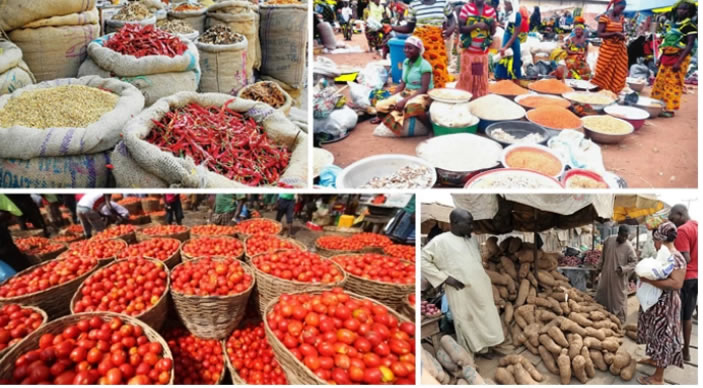Despite various government efforts to promote local production, food security remains a pressing concern.
Over the years, Nigeria has relied heavily on food imports to meet domestic demand, particularly for staples such as rice, wheat, and sugar. This dependence on imports has made the country vulnerable to global market fluctuations, putting pressure on foreign exchange reserves and exacerbating inflation.
The recent food import waiver policy introduced by the federal government aimed to alleviate some of these challenges. By providing exemptions or reductions in import duties and tariffs on certain food items, the government intends to make essential food products more accessible and affordable for Nigerians.
This approach according to some experts is particularly crucial in a time of soaring inflation and economic hardship, which has made basic foodstuffs increasingly out of reach for many households.
The introduction of the food import waiver policy has a range of economic and social implications. Economically, the policy is expected to provide short-term relief for Nigerian consumers by lowering food prices and reducing inflationary pressures. This is particularly important in a country where high food prices have contributed to widespread poverty and social unrest.
However, the policy also has potential downsides as some critics argued that it could undermine local agricultural producers by increasing competition from imported goods. If not managed carefully, this could disincentivise local production and hinder the growth of Nigeria’s agricultural sector, which is crucial for long-term food security and economic stability.
Although the federal government has indicated that the waiver policy will be accompanied by support measures for local farmers, including subsidies, training, and infrastructure investments. These measures aim to boost domestic production and help local farmers compete with imported goods.
On one hand, agricultural organisations and local farmers have expressed caution. Some worry that the policy may lead to a flood of imported food products, potentially harming domestic agriculture. These concerns highlight the need for a balanced approach that supports both importers, local producers and food security.
For Nigeria’s smallholder farmers, who make up the majority of the agricultural workforce, the food import waiver policy presents both opportunities and challenges.
The policy could provide some relief by stabilising food prices, particularly for crops that have been affected by recent production shortfalls. This could help farmers secure better prices for their produce, at least in the short term.
However, the long-term implications for farmers are more concerning. By making imported food more accessible, the policy could erode the market for locally produced food, making it harder for farmers to sell their produce at competitive prices. This could discourage investment in agriculture, particularly in sectors such as rice and wheat production, where Nigeria has been trying to reduce import dependence.
Furthermore, the policy could exacerbate existing inequalities in the agricultural sector. Larger, more commercialised farms may be better positioned to compete with imports, while smaller, less resource-rich farmers could struggle to survive.
This could lead to further marginalisation of smallholder farmers, who are already among the most vulnerable groups in Nigerian society.
Reacting to the development, the National President of the All Farmers Association of Nigeria (AFAN), Mr Kabir Ibrahim, who shared his insights, expressed concerns on the implications of the policy and its impact on farmers.
According to Ibrahim, farmers worried that the gains achieved through the Agricultural Promotion Policy (APP) would be eroded by increased importation.
The umbrella body of farmers said that while farmers are law-abiding and support the policy, their feelings remain mixed as they recognised the need for importation but also harbor reservations.
To enhance farmer support, AFAN president pointed out that government should focus on two critical actions which include; subsidies on farm inputs and creation of a safe and conducive environment for farmers to work seamlessly on their farms.
Ibrahim said that security concerns often hinder agricultural activities, and addressing it by the government remains essential for sustainable food production.
While stakeholders who beamed light on the policy asserted that the duty-free import measure was not a sustainable long-term solution, federal government on the other hand argued that the policy serves as a necessary intervention to prevent a severe food shortage with aim to avert a crisis affecting a significant portion of the population.
However, for lasting food security, Ibrahim stated that the government must prioritise internal production.
He said, “The first thing that comes to the farmers’ mind is that all the gains made through APP will be lost to importation but with adequate explanation agood majority of the farmers have come to understand why it has become necessary to import a given quantity( 500,000 MT) of some products for a defined period(5onths or 150 days) in order to bring down the excruciating food inflation in the country.
“The most important action to be taken by government is the provision of subsidy on all farm inputs and a secure environment so as to be able to go to their farms seamlessly in order to scale internal production which will bring about sustainable food sufficiency which is a prerequisite for the attainment of sustainable food security.The measure is certainly not sustainable but a necessary pill to avert a serious shortage of food to a very large proportion of our citizens.”





